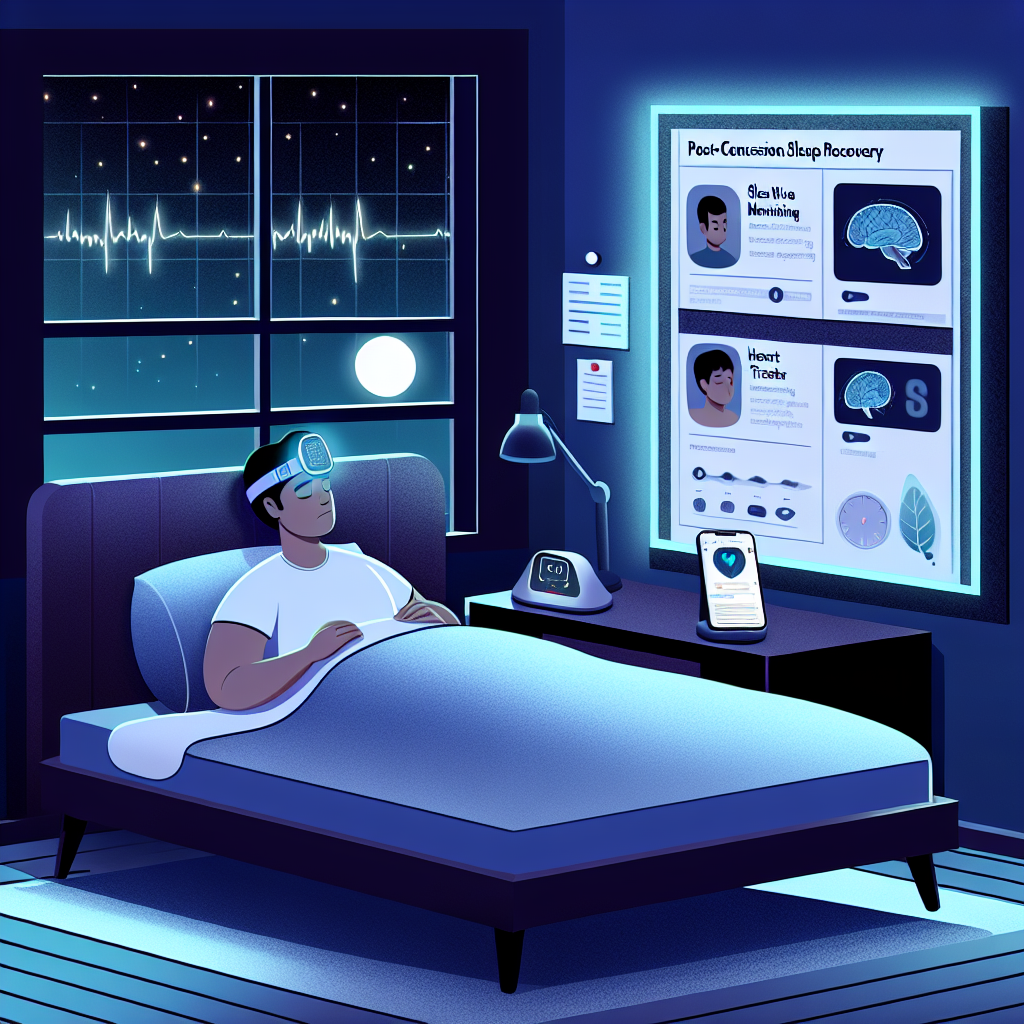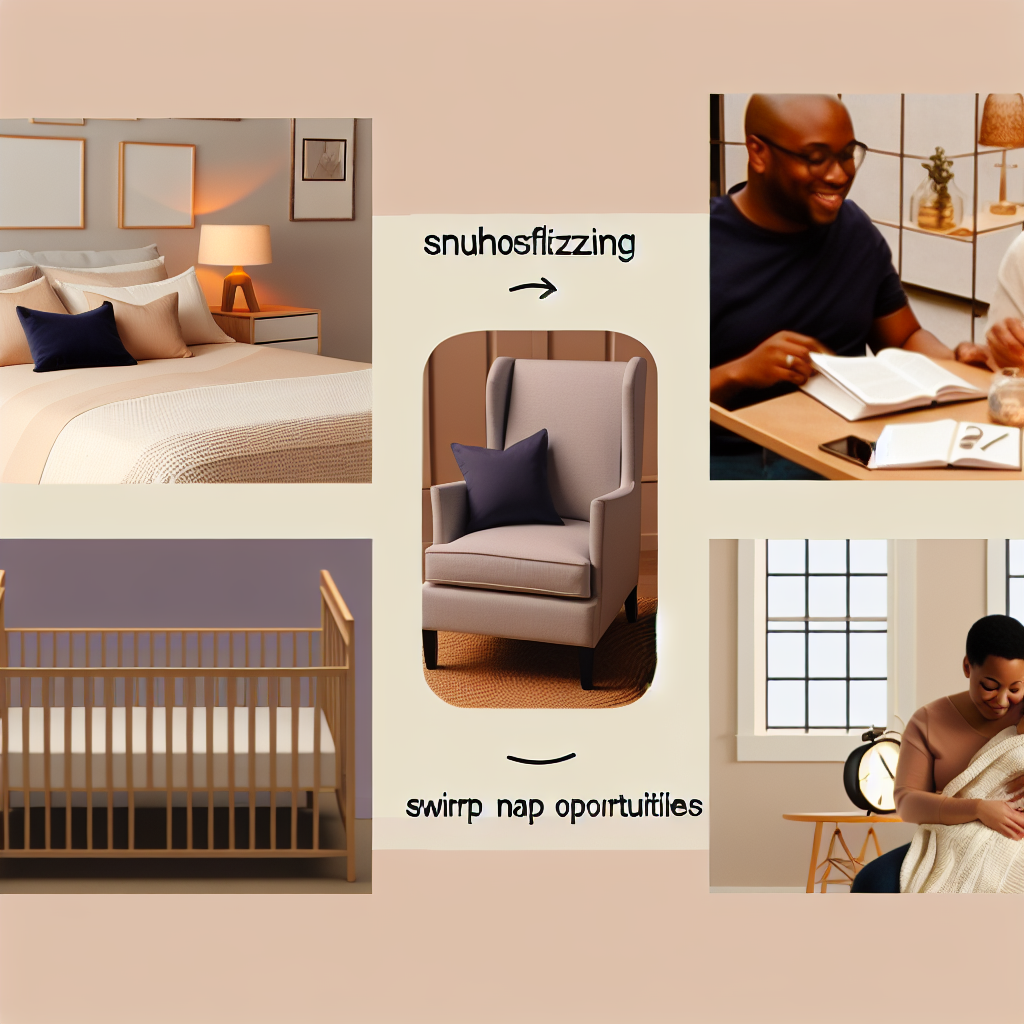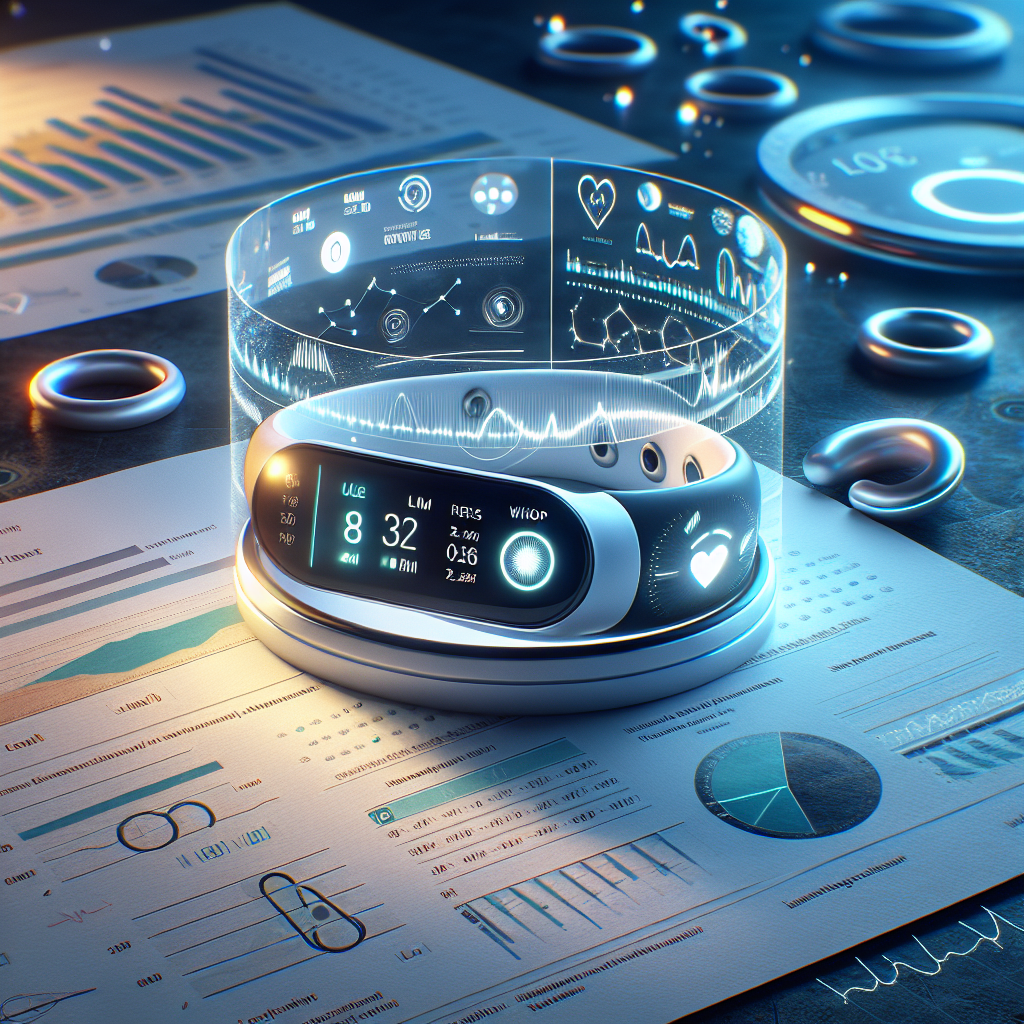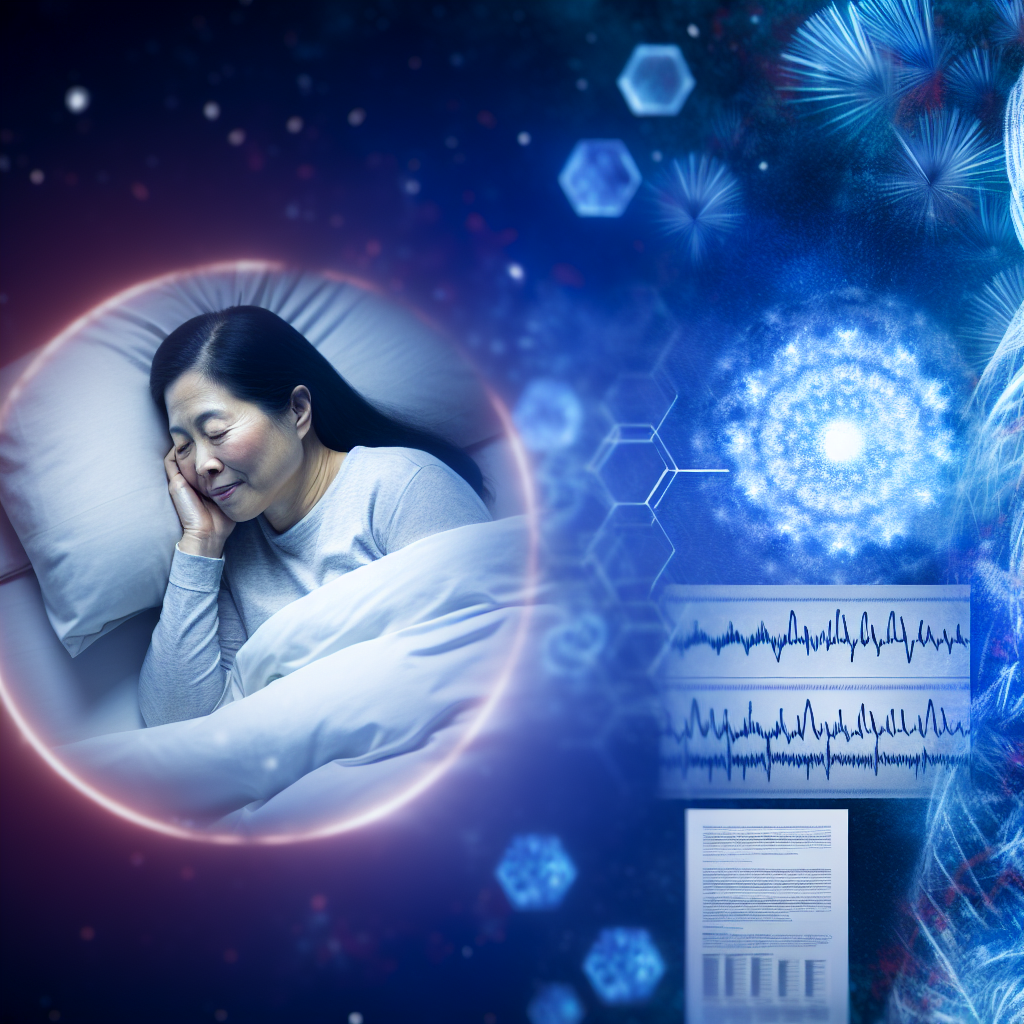Post-Concussion Sleep Recovery: How Specialized Monitoring Technologies are Revolutionizing Healing
Concussions are a form of mild traumatic brain injury (mTBI) that affect millions of people worldwide each year, with the United States alone reporting over three million cases annually. From young athletes to older adults following a fall, no age group is exempt. One of the most commonly reported symptoms post-concussion is sleep disturbance. Individuals often experience insomnia, hypersomnia, delayed sleep onset, increased daytime fatigue, altered sleep architecture, and fragmented sleep patterns. Poor sleep can significantly derail post-concussion recovery, delaying cognitive healing, exacerbating emotional distress, and increasing long-term risks for post-concussion syndrome.
What complicates the picture is how sleep difficulties are often under-recognized following a concussion. While overt symptoms like headaches, dizziness, or memory issues may receive appropriate attention, sleep disruptions are frequently overlooked—even when they fundamentally impair recovery. Medical professionals, researchers, and sleep specialists now regard sleep monitoring as a critical pillar in post-concussion management.
This is where specialized sleep monitoring technologies step in. Through the fusion of digital health innovations, wearable technology, and advanced neuro-monitoring, clinical and consumer devices can now provide real-time data on sleep behaviors, quality, and circadian rhythms. These insights offer patients and clinicians better visibility into how well the brain is healing and adapting post-injury.
Why Sleep Disturbances Matter After a Concussion
A growing number of scientific studies underline the link between sleep disruptions and poor outcomes in post-concussion recovery. According to a 2020 study published in Nature and Science of Sleep, researchers found that nearly 70% of individuals with mTBI experienced measurable changes in sleep-wake cycles, including disrupted circadian rhythm and decreased overall sleep efficiency. These findings stress the need for continuous post-discharge monitoring, especially during the first few weeks after injury.
Another Canadian study conducted by the University of British Columbia monitored athletes with post-concussion symptoms and found that delayed sleep onset latency and reduced REM sleep were consistently associated with slower cognitive recovery and prolonged symptom duration. Early identification of such disturbances could allow interventions at a critical stage, vastly improving recovery outcomes.
Game-Changing Technologies in Sleep Monitoring
Technological responses to these emerging needs have advanced rapidly. One standout innovation includes wearable EEG devices such as the Muse S Headband, which tracks brainwave activity linked to sleep stages. With Bluetooth-enabled data transmission, both patients and healthcare providers can remotely monitor sleep quality and architecture from home. This empowers clinicians to adjust therapy plans based on real-time data, including introducing cognitive behavioral therapy for insomnia (CBT-I), melatonin use, or even light therapy protocols.
Smartwatches like the Apple Watch Series 9 and Fitbit Sense provide critical data such as heart rate variability (HRV), blood oxygen saturation, sleep staging, and movement tracking. In concussion patients, HRV is particularly relevant as it reflects autonomic nervous system function—a domain often compromised during brain injury recovery.
No-Wear Solutions: Contact-Free Sleep Monitoring at Home
Another significant advancement comes in the form of non-wearable technologies. Under-mattress sensors and smart sleep systems like the Withings Sleep Analyzer and Eight Sleep Pod collect data passively throughout the night. These devices track sleep cycles, snoring, respiratory rate, and even environmental conditions (temperature, noise), which can greatly influence sleep quality during recovery.
By eliminating the need for wearable devices, these contact-free solutions are ideal for children, seniors, or individuals who may be uncomfortable using headbands or wrist devices overnight.
Predictive Recovery: AI and Machine Learning Lead the Way
Machine learning is now being used to synthesize vast amounts of sleep data for predictive health insights. A groundbreaking 2022 study published in Frontiers in Neurology revealed that an AI-based sleep scoring system could predict post-concussion recovery time with 85% accuracy—purely through sleep data collected over a two-week period.
This integration of artificial intelligence offers an exciting step forward in personalized concussion management, possibly enabling clinicians to identify patients at risk for prolonged recovery much earlier than traditional methods allow.
Data Integration: Building a More Unified Concussion Recovery Plan
One of the most promising trends in digital health is the integration of sleep data with electronic health records (EHR). By combining wearable and passive monitoring data with clinical notes, neuroimaging, and patient-reported outcomes, care teams can gain a comprehensive picture of patient progress. This real-time connectivity makes it easier to make proactive decisions, customize treatments, and share data across providers—from neurologists to sleep specialists to physical therapists.
Conclusion: Sleep Technology is Rewriting the Concussion Recovery Playbook
Recovering from a concussion is a complex neurological process, and sleep plays a pivotal role in healing the brain. Persistent sleep disturbances following traumatic brain injury have been linked to cognitive impairments, emotional instability, and longer recovery times. However, the growth of specialized sleep monitoring technologies has begun to fill an important gap in post-concussion care. By giving providers and patients visibility into the quality and architecture of sleep, these tools facilitate earlier interventions, more precise treatments, and improved recovery outcomes.
Whether it’s wearable EEG bands, contact-free sleep monitors, AI sleep diagnostics, or smart bed technology, we are witnessing a revolution in how sleep health is monitored post-concussion. Importantly, these tools make it easier for patients of all ages—children, adults, and the elderly—to take charge of their recovery journeys from the comfort of their homes.
As awareness around the importance of sleep in brain health grows, integration of these technologies into standard concussion protocols could become the norm. Investing in personalized, real-time sleep monitoring represents an important step forward in holistic concussion management—one that brings hope for faster and fuller recovery.
References
1. Gosselin, N., et al. (2020). The effects of mild traumatic brain injury on sleep: A scoping review. Nature and Science of Sleep, [https://www.ncbi.nlm.nih.gov/pmc/articles/PMC7182366/]
2. Fino, P. C., et al. (2021). The role of sleep in recovery following sport-related concussion. Journal of Neurotrauma, [https://www.liebertpub.com/doi/10.1089/neu.2020.7387]
3. Frontiers in Neurology. (2022). Using artificial intelligence for predicting post-concussion recovery time based on sleep characteristics. [https://www.frontiersin.org/articles/10.3389/fneur.2022.861295/full]
4. Muse S EEG Headband. InteraXon Inc. [https://choosemuse.com/muse-s/]
5. Withings Sleep Analyzer – Sleep Tracking Mat. [https://www.withings.com/us/en/sleep]
6. Eight Sleep Pod – Smart Bed Technology. [https://www.eightsleep.com/]
Summary:
Post-concussion sleep disturbances can significantly impair recovery, delaying cognitive healing and increasing long-term risks. Specialized sleep monitoring technologies, including wearable EEG devices, smartwatches, and contact-free home sensors, are revolutionizing how clinicians and patients track sleep quality during the post-injury phase. These tools provide real-time data on sleep behaviors, circadian rhythms, and autonomic nervous system function, enabling earlier interventions and more personalized treatment plans. Integrating sleep data with electronic health records also allows for a more comprehensive view of patient progress, facilitating proactive care decisions. As awareness of the importance of sleep in brain health grows, these technologies are poised to become a standard part of holistic concussion management, driving faster and more complete recovery.

Dominic E. is a passionate filmmaker navigating the exciting intersection of art and science. By day, he delves into the complexities of the human body as a full-time medical writer, meticulously translating intricate medical concepts into accessible and engaging narratives. By night, he explores the boundless realm of cinematic storytelling, crafting narratives that evoke emotion and challenge perspectives.
Film Student and Full-time Medical Writer for ContentVendor.com




